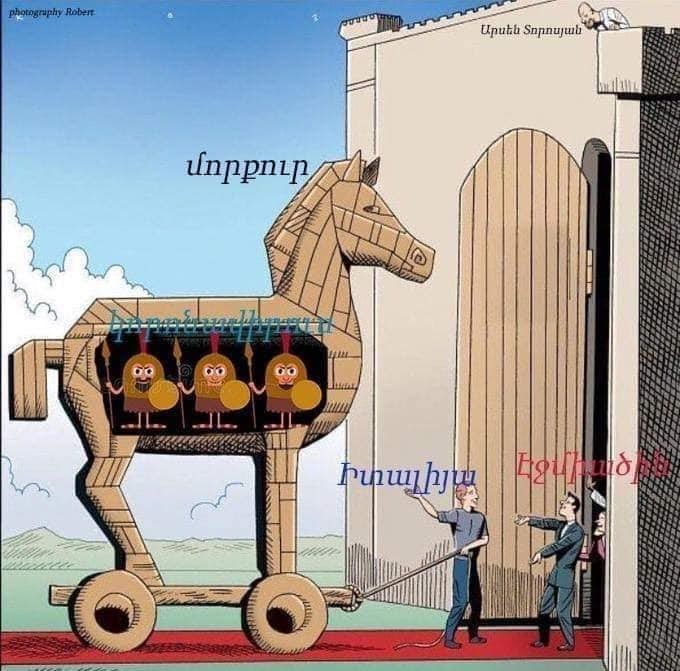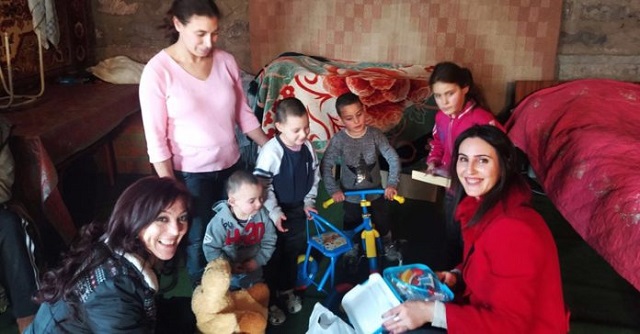The Armenian Weekly. I remember watching news reports of the Fukushima nuclear disaster back in 2011. Looking through images of Japanese people in the affected areas stoically queuing up in an orderly fashion as the years of emergency evacuation training automatically, if not instinctively, kicked in, I remember thinking to myself, “How would Armenian society react if, God forbid, something happened to Medzamor?” Luckily, we have yet to find out how that specific scenario would play out, but if the ongoing state of emergency situation over the novel COVID-19 outbreak serves as any indication, probably just fine.
#WorkFromHome
As the “Silicon Valley of the Caucasus,” a substantial percentage of Armenia’s workforce is employed in the tech sector. For many of these tech workers, the prospect of continuing to type away on their computer from the comfort of their own bed is “business as usual” more than anything else. Virtually every major tech company in Armenia has instituted work from home measures, and so far few seem to be complaining. The crisis has also accelerated the widespread adoption of e-learning tools, with every university in the country continuing classes as usual online.
The hashtag “#ՄնացեքՏանը” (#stayathome) has taken on a life of its own over social media as people turn remote work into a lifestyle trend. Many Instagram users have been uploading pictures of their new home office setups, while others respond with comments on their gear, layout and availability of lumbar support.
Read also
Keep Calm and Carry On
There is no equivalent expression in the Armenian vernacular which quite compares to Britain’s legendary “Dunkirk Spirit,” but perhaps there should be. When the news hit on March 1st that the much-feared coronavirus had finally hit Armenia, many expected the same scenes of chaos from around the world to reproduce themselves across the country’s supermarkets and gas stations. Armenians, after all, aren’t known for their patience or composure under pressure.
While some did indeed dash for the nearest toilet paper roll, most shelves remained stocked, the supply chain held up, and Ministry of Health guidelines have been largely respected.
Restaurants, many of which are suffering due to the sudden drop in customers caused by self-isolation protocols, continue to operate by acting like remote kitchens delivering fresh hot meals to the tens of thousands stuck in their apartments. Online grocery orders are also at an all-time high as people try to avoid the crowds; several supermarkets are reporting three- to four-hour delays in delivery times due to the demand.
Spontaneous Order of Solidarity
While the government’s handling of the crisis has mostly garnered praise (Armenia did get a respectable ‘green’ score on Prevent Epidemics’ preparedness ranking), many have turned to social media to coordinate volunteer efforts to help those in need, share important information regarding public safety or even organize support for smaller local businesses affected by the current circumstances. These efforts were even encouraged by the Prime Minister who posted a video of himself touring fully stocked grocery stores in an effort to discourage panic buying and called on consumers to avoid crowded big chain supermarkets by shopping at local bodegas instead. Banks, for their part, have announced grace periods on loan repayments and other outstanding expenses.
One repat, whose quail egg farm was hit hard by the sharp decline of orders from restaurants (his primary customers), was surprised when his plea on Facebook to support his business was met with a flood of orders from fellow repats and locals alike. “These past few days I have accumulated 21 packages of fresh quail eggs and prepared two cans of pickled quail eggs. With your swift help, I am sold out for now,” he wrote in a Facebook update.
For families stuck at home, some Facebook users prepared instructional videos on how to keep houses germ-free, entertain small children, and manage the psychological effects of cabin fever. Others in the besieged town of Echmiadzin have set up an ersatz surgical mask production line in a factory space made available by its owner in order to help supply their local hospital. A call for volunteers by the Ministry of Health to assist public health workers’ efforts to combat the virus was answered by over 2,000 people within hours. In the Diaspora, a fundraiser has been launched to help public health bodies in Armenia purchase vital sanitary equipment.
The Dank Memes

Image satirizing a recent Coronavirus outbreak in Echmiadzin resulting from an infected lady attending a party by comparing it to the Trojan Horse (Source: Photography Robert)
Internet memes have rapidly become the most visible expression of the Armenian people’s resilience in a time of national emergency. Thousands of bored homebound residents with internet access have been pouring their creativity into ever-more-elaborate memes satirizing the realities of life in coronavirus-afflicted Armenia.
The streets might be more empty than usual and online traffic a little higher, but so far the most striking aspect of Armenia’s ongoing State of Emergency is the mundanity of it all.





























































